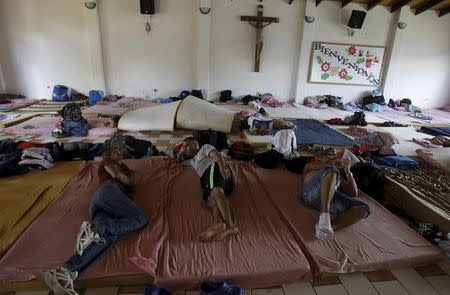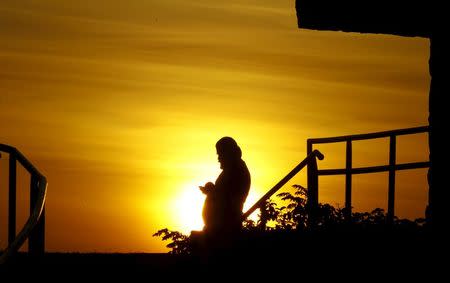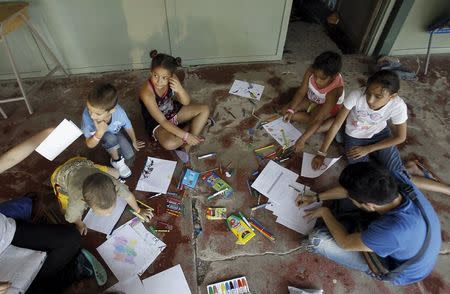Costa Rica to tell Cuba it cannot keep aiding stalled migrants
By Marc Frank and Daniel Trotta HAVANA (Reuters) - Costa Rican President Luis Guillermo Solis will tell Cuban President Raul Castro his Central American country is unable to continue caring for thousands of Cuban migrants indefinitely, seeking to force a resolution to the month-long crisis. Solis arrived in Cuba on Sunday for the first official visit by a Costa Rican president in 72 years with nearly 5,000 Cuban migrants stranded on his country's northern border with Nicaragua as they seek to reach the United States. Solis is due to meet Castro on Tuesday. "We cannot maintain this task indefinitely," Solis said of the effort by national and local officials, churches and private companies to support the Cubans, most of them living in shelters. "With all brotherly frankness, I will pose this in meetings to be held with the presidents of the SICA (Central American Integration System) and in Havana with President Raul Castro," Solis said in an address broadcast in Costa Rica. Solis' visit to Cuba was planned well before the crisis. Costa Rica re-established relations with Cuba in 2009, the last country in Latin America to do so. The Cubans began arriving a month ago on their dangerous 7,000-kms (4,400-mile) overland trek from Ecuador, where they could fly without a visa to the Mexican-U.S. border, where Cubans are given legal passage into the United States. When the United States reached detente with Cuba a year ago, it led to a spike in Cuban emigration, partly due to fears the Americans would end the special treatment that grants them residence with relative ease. The issue reached crisis proportions when Costa Rica broke up a gang of human smugglers, leaving the Cubans in the lurch. Costa Rica closed its border after arresting the smugglers, then granted the Cubans temporary visas to pass through. But Nicaragua, a country further to the north that is also a close ally of Cuba's, refused to follow suit, leaving Costa Rica with an ever growing number of migrants. Nearly 5,000 are stuck in shelters on the border and an estimated 1,300 to 1,500 are held up in Panama, one country to the south, attempting to move into Costa Rica. Cuba has repeatedly blamed the United States' Cold War-era immigration policy for enticing its citizens to risk their lives and fostering human smuggling. Solis has promised not to deport the Cubans and to continue looking for a way to get them to the United States. (Reporting by Marc Frank and Daniel Trotta; Editing by Jonathan Oatis)



